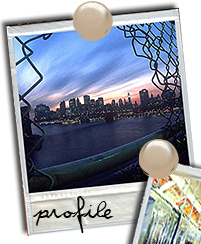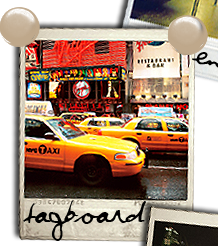
IT WAS a heartfelt send-off for the late Dr Goh Keng Swee, one of Singapore's founding fathers.
More than 800 guests attended the State Funeral Service for Dr Goh at the Singapore Conference Hall yesterday afternoon, dressed solemnly in respect for the former deputy prime minister.
Many people also held vigil outside the hall to bid their last farewells, some overcome with emotion.
Elsewhere, residents of Kreta Ayer, where Dr Goh served as a Member of Parliament for more than 20 years until 1984, attended a memorial service organised by grassroots leaders at Kreta Ayer Square.
During the funeral service at Singapore Conference Hall, five people paid tribute to Dr Goh, who died of pneumonia on May 14 at the age of 91.
In his eulogy, Minister Mentor Lee Kuan Yew said that, of all his Cabinet colleagues, 'it was Goh Keng Swee who made the greatest difference to the outcome for Singapore'.
'He was my trouble-shooter,' MM Lee said. 'I settled the political conditions so that his tough policies we together formulated could be executed.'
MM Lee said he gave him the toughest government jobs to fix a variety of problems that Singapore faced in the 1950s to the 1970s, be it in finance, defence or education.
Prime Minister Lee Hsien Loong spoke of how Dr Goh 'introduced sweeping initiatives that set the basis for the country's long-term prosperity and security'.
'Without him, much of today's Singapore would not exist,' he said.
PM Lee also said Dr Goh stood up for officers who had served under him. He recalled how Dr Goh once defended him in Parliament, when an opposition MP filed a question targeted at PM Lee.
Temasek Holdings chairman S. Dhanabalan remembered Dr Goh's foresight in his eulogy.
Mr Dhanabalan said that in 1968, an American multinational company wanted to build a petroleum refinery in Sentosa. But Dr Goh insisted that Sentosa be kept for recreation instead. Today, Sentosa is a popular tourist destination.
Two family members shared their memories of Dr Goh as a caring and humble man.
Grandson Goh Ken-Yi, 37, who studied engineering but became a banker, said while his grandfather would rise to any challenge if he had to, 'he would often deflect any notion of praise directed towards him' after the work was done.
Grandniece Marian Hui, 17, said Dr Goh cared for people around him in his 'own unique way'. Once, he gave Miss Hui's family a set of nature documentary videos, Sir David Attenborough's The Trials Of Life, because he knew her family would like them.
After the eulogies, two wreaths were laid by his widow, Dr Phua Swee Liang, 71, and PM Lee.
At about 4pm, Dr Goh's casket was carried out of the conference hall. The cortege proceeded to Mandai Crematorium where a private ceremony for family members was held.
Since last Thursday, when the casket laid at Parliament House, more than 18,000 people paid their respects to Dr Goh.
For Kreta Ayer-Kim Seng grassroots leader Cindy Chat, 49, being selected as a pallbearer for Dr Goh had personal significance for her.
'I am honoured to send off Dr Goh more so because I had also helped to organise a farewell for him in 1984,' she said.
PRIME MINISTER LEE HSIEN LOONG'S EULOGY FOR DR GOH KENG SWEE
The Family of the late Dr Goh Keng Swee
Mr President
Distinguished Guests
Friends and Fellow Singaporeans
1. May I, on behalf of the government and people of Singapore, convey our deepest condolences to Mrs Goh and the family of the late Dr Goh Keng Swee on his passing at the age of 91.
2. Great leaders shape and influence the course of events through their actions and ideas. Singapore is a small country with a short history. But we too have had giants in our midst - men who have turned the tide for Singapore, and created a successful nation against the odds.
3. Dr Goh was one of our nation's founding fathers. In our formative years, he dealt with the most pressing problems of the day. But more importantly, he introduced sweeping initiatives that set the basis for the country's long-term prosperity and security. Without him, much of today's Singapore would not exist.
4. Dr Goh was a nationalist and a strong advocate for independence from British rule. After earning his PhD in England, he worked for a few years in the social welfare department, while supporting the People's Action Party (PAP) from behind the scenes. In 1959, Singa'pore won self-governing status from the British, and general elections were held. Dr Goh resigned as a civil servant to contest as a PAP candidate. When the PAP won, Dr Goh became our first Finance Minister.
5. Dr Goh soon discovered that the government was almost broke, and expected a budget deficit of $14 million that year. Prudent and thrifty by nature, Dr Goh immediately introduced drastic measures to cut spending, including cutting civil service salaries. This was obviously unpopular, but Dr Goh stood firm. When he delivered the Budget at the end of the year, he proudly declared that the government had achieved a small surplus of $1 million. He had drafted the speech personally, after secluding himself on the remote island of Raffles Lighthouse to concentrate on the task. Dr Goh set the tone for the PAP government, which ever since has steadfastly upheld budget discipline and fiscal prudence.
6. Dr Goh next turned his attention to jump-starting the stagnant economy. He decided on a strategy of rapid industrial'isation, attracting investments from MNCs to create jobs and exports. This was a radical and untested approach. It was contrary to the conventional wisdom then, that poor countries could achieve economic development through import substitution, and that MNCs were new colonial powers out to exploit impoverished workers in the Third World.
7. Key to the industrialisation programme was an ambitious project to transform the swamps of Jurong into a modern industrial estate. Dr Goh saw this as "an act of faith in the people of Singapore". He and his friend Mr Hon Sui Sen, then Chairman of the Economic Development Board, set out to develop Jurong with energy and determination.
8. The strategy did not work immediately. Investors were put off by the instability and mayhem created by the Communists and their sympathisers. There were more troubles after Singapore joined Malaysia, and the federal government in Kuala Lumpur controlled the award of Pioneer Certificates (for tax holidays) to investors. Not a single application for Pioneer Certificates was approved during this period. Given these problems, Jurong made little progress. Cynics mocked the venture, calling it "Goh's Folly".
9. But after independence we left these problems behind. The industrialisation strategy proved its worth, and Jurong industrial estate took off. By 1968, almost 300 factories operated in Jurong, employing 21,000 workers. Today, the Jurong project has far outgrown its geographical boundaries. Jurong Town Corporation was renamed JTC Corporation, because it was managing industrial estates all over Singapore, not just in Jurong. JTC Corporation has also spun off commercial arms, like Ascendas and JTC International, which have planned and built industrial parks and townships in many Asian countries. These successes have won Singapore an international reputation as a first class infrastructure provider.
10. Dr Goh pioneered many other economic institutions. He helped create the Monetary Authority of Singapore (MAS), where he laid out the policies that produced a stable Singapore Dollar and preserved the purchasing power of Singaporeans, not least their CPF savings. Years after Dr Goh retired, I served as Chairman of MAS. My task was to revise and update MAS' policies, many of which traced back to Dr Goh. We changed course very cautiously, always mindful of the good reasons and careful analysis that underpinned the original policies. For example, Dr Goh firmly opposed allowing market players free rein to speculate on the Singapore dollar, say by borrowing Singapore dollars in order to short the currency. Our small, open economy depended too much on a stable exchange rate. MAS applied a very strict policy, famously known as "the non-internationalisation of the Singapore dollar". By the late 1990s, we needed to relax these restrictions, in order to grow the fund management industry in Singapore. We did so in careful, incremental steps, over several years, loosening the implementation but never giving up the principle.
11. Beyond economics, Dr Goh helped to steer our nation through its difficult birth. His was often a backroom role, developing strategies and arguments to counter first the communists and then the communalists. But his robust attitude encouraged the whole team to press on against seemingly unwinnable odds, eventually to prevail and create today's Singapore.
12. Once Singapore became independent, we faced a pressing need to develop a defence capability and safeguard ourselves in a dangerous world. Although Dr Goh initially knew little about military matters, he took on the heavy responsibility as our first Defence Minister, and built up the Singapore Armed Forces (SAF) from scratch.
13. Dr Goh took a personal interest in all aspects of the SAF. No detail was too small for him. I once followed him to visit a field engineer defence exercise. We passed one site where the troops were digging a large bunker. It was a hive of activity: all the soldiers swarming over the work site, hard at work. This did not escape Dr Goh's practised eye. He commented that the soldiers should have been divided up into shifts - one third working, one third resting, and one third on guard. They should not all be working at once, and especially not to impress the minister.
14. Dr Goh understood that what counted most to the SAF was ability and talent. The SAF needed commanders and staff officers with the leadership qualities, intellectual abilities and professional competence to build and operate a modern, high-tech defence force. He created Project Wrangler, a talent management scheme overseen personally by the Minister, to identify promising officers, and systematically track, groom and advance them to key command and staff appointments. He introduced the SAF Scholarship scheme to induct top talent into the SAF. But he did not forget the older officers, mostly non-graduates, who had got the SAF off the ground: so he implemented a programme to enable deserving ones among them to study for Master's degrees at Duke University in military history and strategy. This is why today we have a cadre of capable and committed SAF leaders who understand defence technology, appreciate the strategic context, and can make sound decisions on and off the battlefield to ensure Singapore's security. Without such a team, we could not have built up, nor could we operate the 3G SAF, a professional and credible deterrent force respected alike by Singaporeans, partners and other armed forces in Asia and around the world.
15. I was in the first batch of SAF Scholars. Dr Goh took a special interest in us, and met us before we left for our overseas studies. He presented us each with two military classics: Sun Tzu's Art of War and Liddell Hart's Strategy: The Indirect Approach. He had specially ordered the books, and inscribed them to each of the young second lieutenants, "wishing you a successful military career". Dr Goh's gesture showed both his grasp of strategy and security issues, as well as his keen interest in nurturing talent for the SAF.
16. Dr Goh's last ministry was education. Here too he introduced major reforms, leaving his imprint on a fundamentally changed education system. His approach was systematic, analytical, and results oriented. Today, nearly every student completes secondary education, masters both English and a mother tongue, and attains standards of mathematics and science that are among the highest in any country. As in so many other areas, Dr Goh's work laid the foundation on which his successors have built, to reach greater heights.
17. With a creative mind and wide-ranging interests, Dr Goh had a tremendous zest for life and work. He would come up with new ideas every day for the civil servants to study and implement. Submissions to him frequently came back covered with corrections, to polish the language and sharpen the arguments, or sometimes demolish them. Many young officers benefited from his guidance. Their careers and lives were changed by their interaction with Dr Goh, who more than once intervened at critical points to overcome an obstacle or to guide them in the right direction. They included President S R Nathan, Mr Goh Chok Tong, Mr Wong Kan Seng, Mr Mah Bow Tan, and Mr S Dhanabalan, as well as Permanent Secretaries like Ngiam Tong Dow, Lim Siong Guan, Philip Yeo, and Joe Pillay, and many others.
18. Dr Goh was a hard task-master but also a teacher and mentor. He recognised good work, and would back officers who had done well. He promoted and appointed people on merit, disregarding seniority in order to get the job done. He would fight for their promotions, which were not always within his dispensation because he needed to persuade the Public Service Commission. He would stand up for them publicly. I remember when I resigned from the SAF to enter politics, an opposition MP filed a Parliamentary question which was obviously targeted at me. Dr Goh was then no longer the Minister for Defence, but he nevertheless rose in Parliament to defend me, and the integrity of MINDEF's personnel and promotion system, in his usual robust style. Many other officers who served him had similar experiences.
19. Dr Goh also had a fun side to him. In MINDEF, he became frustrated that directives from headquarters to the units were having so little effect. As an experiment, he ordered a directive issued to all units that comprised nothing but the Bible passage on Noah's Ark. The directive made its way through the organisation - some units simply passed it on to their subordinate units for implementation, others filed it for reference, and only one person asked what it was for. Dr Goh wrote up the results into a paper, which he entitled "Noah's Ark Progresses through the SAF".
20. Dr Goh's writings and speeches reflected his depth of thinking and broad range of reference. He published three volumes - The Practice of Economic Growth, The Economics of Modernization, and The Wealth of East Asian Nations. Many of the pieces are gems that remain well worth reading today, decades later. Those wishing to learn about economic management and governance in modern Singapore will gain much from studying them.
21. A whole generation of Singaporeans has grown up enjoying the fruits of growth and prosperity, because one of our ablest sons decided to fight for Singapore's independence, progress and future. Instead of pursuing a private career, Dr Goh chose to serve the larger good, and stayed in public service for more than 25 years.
22. Thousands have paid their last respects to Dr Goh this last week, in gratitude for what he had done for Singapore, and often personally to themselves. The media have reported a few of their stories - the old lady who was visited by Dr Goh when the family was very poor; another lady whom Dr Goh had come across as a little girl weeping in school, and had comforted; the young navy officer who reported to Dr Goh after making a grave mistake, but was forgiven because he owned up. These personal gestures and kindnesses reflected Dr Goh's character and compassion, which underpinned his enormous contributions to Singapore.
23. Singapore is forever indebted to Dr Goh Keng Swee.
http://www.asiaone.com/static/multimedia/gallery/100521_gksp/
1. Problems are bad:
Real problems are wonderful, each carrying the seeds of its own solution. Job burnout? It's steering you toward your perfect career. An awful relationship? It's teaching you what love means. Confusing tax forms? They're suggesting you hire an accountant, so you can focus on more interesting tasks, such as flossing. Finding the solution to each problem is what gives life its gusto.
2. It's important to stay happy.
Solving a knotty problem can help us be happy, but we don't have to be happy to feel good.
If that sounds crazy, try this: Focus on something that makes you miserable. Then think, "I must stay happy!" Stressful, isn't it? Now say, "It's okay to be as sad as I need to be." This kind of permission to feel as we feel -- not continuous happiness -- is the foundation of well-being.
3. I'm irreparably damaged by my past
Painful events leave scars, true, but it turns out they're largely erasable. Jill Bolte Taylor, the neuroanatomist who had a stroke that obliterated her memory, described the event as losing "37 years of emotional baggage." Taylor rebuilt her own brain, minus the drama.
Now it appears we can all effect a similar shift, without having to endure a brain hemorrhage. The very thing you're doing at this moment -- questioning habitual thoughts -- is enough to begin off-loading old patterns.
For example, take an issue that's been worrying you ("I've got to work harder!") and think of three reasons that belief may be wrong. Your brain will begin to let it go. Taylor found this thought-loss euphoric. You will, too.
4. Working hard leads to success
Baby mammals, including humans, learn by playing, which is why "the battle of Waterloo was won on the playing fields of Eton."
Boys who'd spent years strategizing for fun gained instinctive skills to handle real-world situations. So play as you did in childhood, with all-out absorption.
Watch for ways your childhood playing skills can solve a problem (see #1). Play, not work, is the key to success. While we're on the subject...
5. Success is the opposite of failure.
Fact: From quitting smoking to skiing, we succeed to the degree we try, fail, and learn. Studies show that people who worry about mistakes shut down, but those who are relaxed about doing badly soon learn to do well. Success is built on failure.
6. It matters what people think of me
"But if I fail," you may protest, "people will think badly of me!" This dreaded fate causes despair, suicide, homicide.
I realized this when I read blatant lies about myself on the Internet. When I bewailed this to a friend, she said, "Wow, you have some painful fantasies about other people's fantasies about you."
Yup, my anguish came from my hypothesis that other people's hypothetical hypotheses about me mattered. Ridiculous! Right now, imagine what you'd do if it absolutely didn't matter what people thought of you. Got it? Good. Never go back.
7. We should think rationally about our decisions
Your rational capacities are far newer and more error-prone than your deeper, "animal" brain. Often complex problems are best solved by thinking like an animal.
Consider a choice you have to make -- anything from which movie to see to which house to buy. Instead of weighing pros and cons intellectually, notice your physical response to each option. Pay attention to when your body tenses or relaxes. And speaking of bodies...
8. The pretty girls get all the good stuff
Oh, God. So not true. I unlearned this after years of coaching beautiful clients. Yes, these lovelies get preferential treatment in most life scenarios, but there's a catch: While everyone's looking at them, virtually no one sees them.
Almost every gorgeous client had a husband who'd married her breasts and jawline without ever noticing her soul.
9. If all my wishes came true right now, life would be perfect
Check it out: People who have what you want are all over rehab clinics, divorce courts, and jails. That's because good fortune has side effects, just like medications advertised on TV.
Basically, any external thing we depend on to make us feel good has the power to make us feel bad.
Weirdly, when you've stopped depending on tangible rewards, they often materialize. To attract something you want, become as joyful as you think that thing would make you. The joy, not the thing, is the point.
10. Loss is terrible
Ten years ago I still feared loss enough to abandon myself in order to keep things stable. I'd smile when I was sad, pretend to like people who appalled me.
What I now know is that losses aren't cataclysmic if they teach the heart and soul their natural cycle of breaking and healing.
A real tragedy? That's the loss of the heart and soul themselves. If you've abandoned yourself in the effort to keep anyone or anything else, unlearn that pattern. Live your truth, losses be damned. Just like that, your heart and soul will return home.









 ok..last fri was jenny's last day of work in tidewater...
ok..last fri was jenny's last day of work in tidewater...